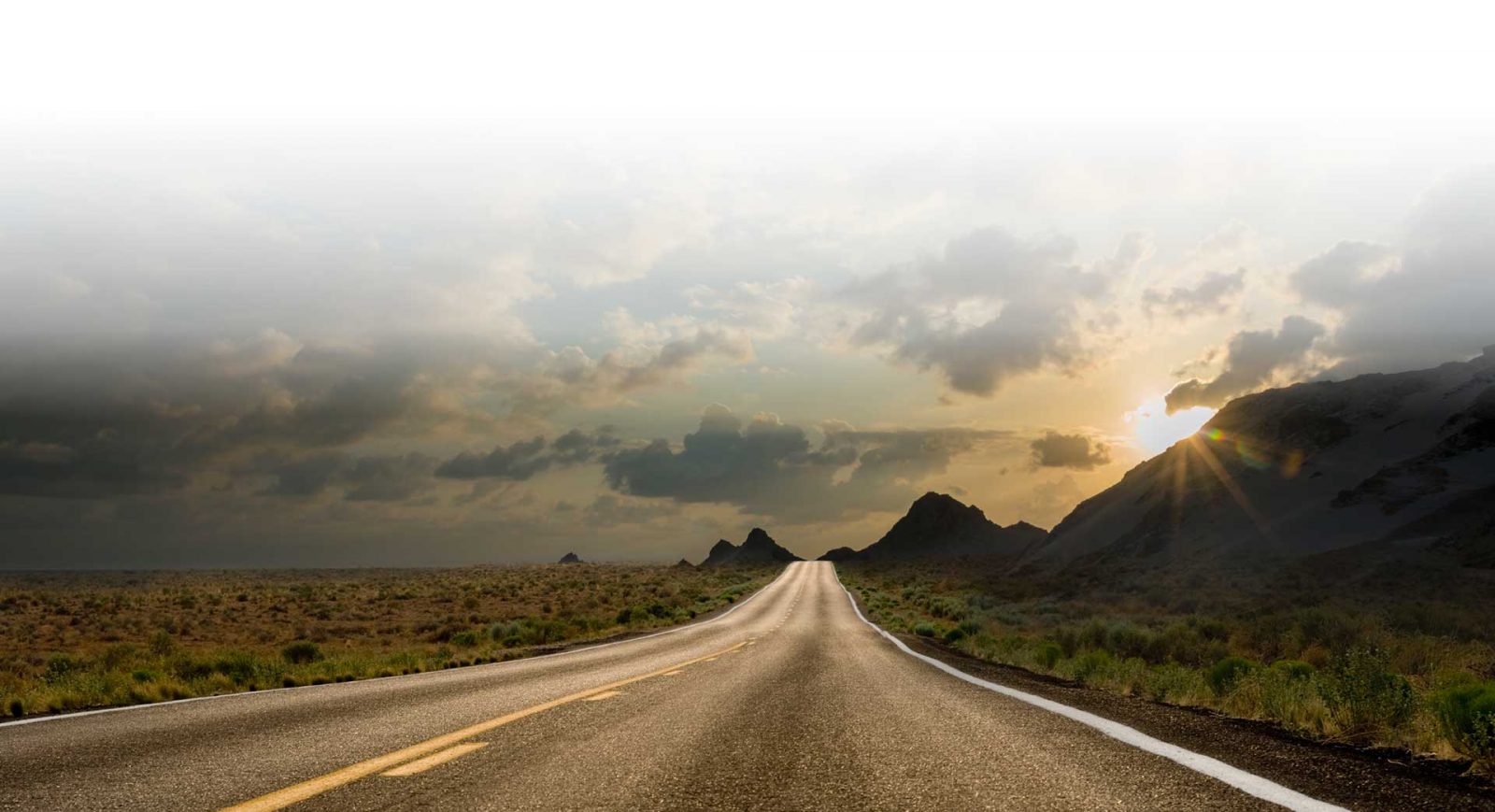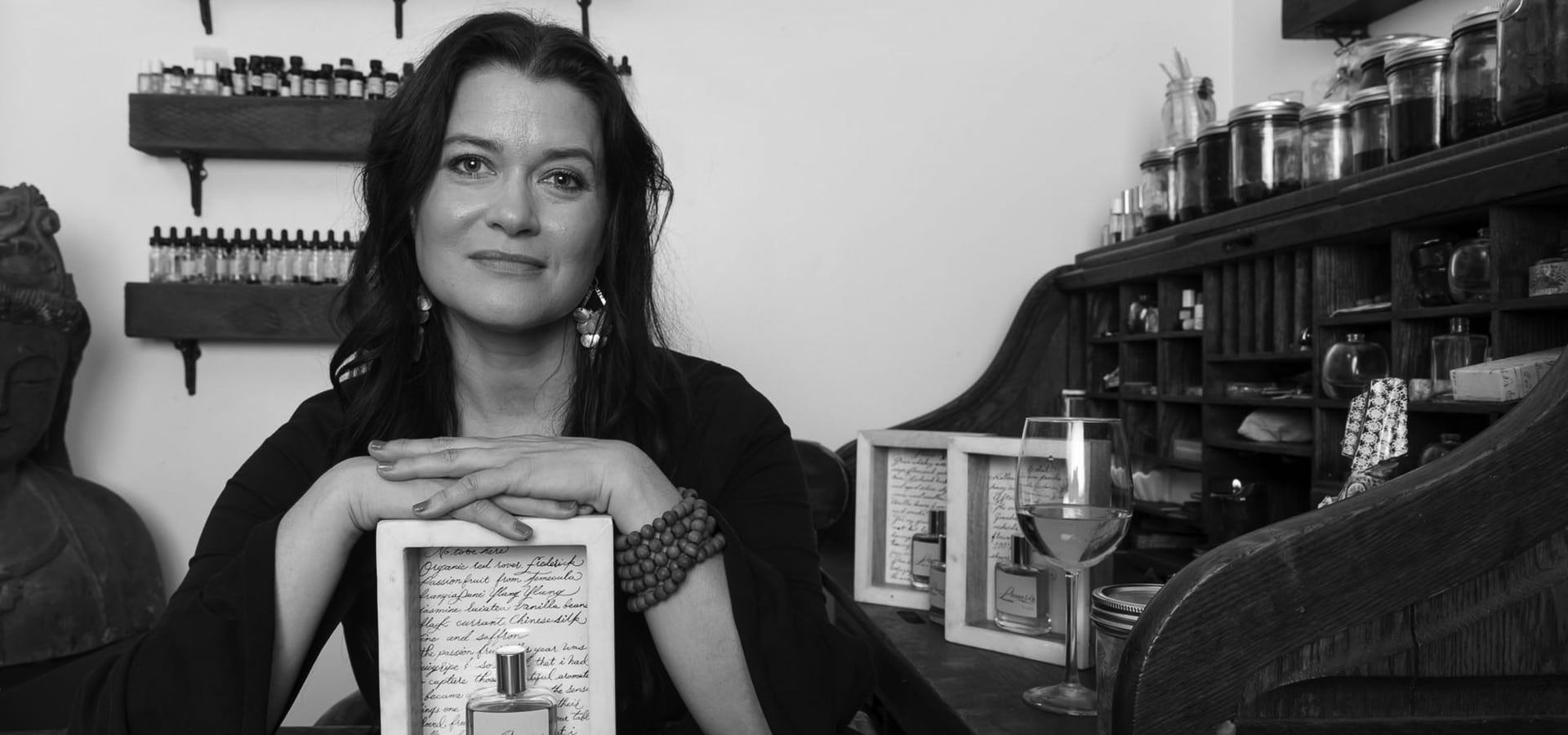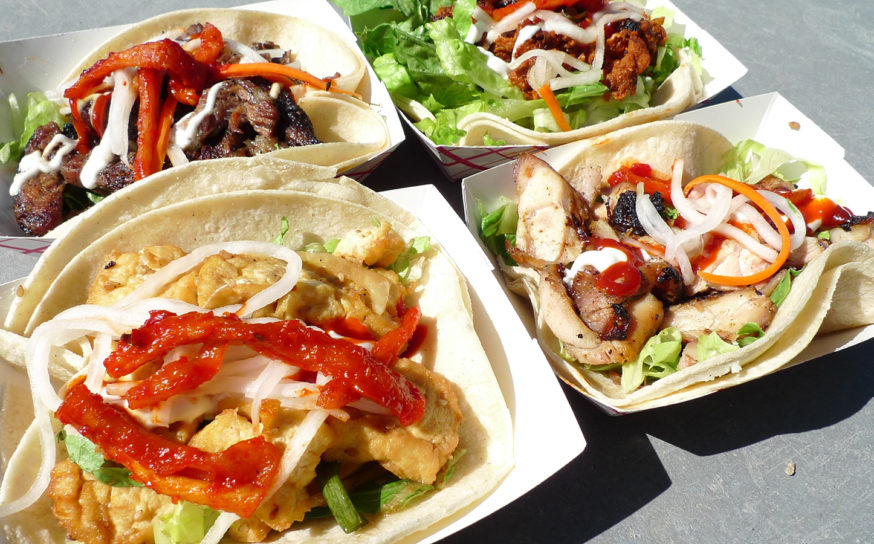A Wine Sommelier Uses Good Sense to Launch Her Own Handmade Perfume Line
She has a nose for entrepreneurship.
-
CategoryFarm + Table, Makers + Entrepreneurs, Small Businesses, Wine + Beer
-
Interviewed byBonnie Graves
-
Photographed byMonica Orozco
-
Don’t let her gorgeous face distract you. Rachel Binder is a rare beauty with an even rarer nose. This sommelier-turned-entrepreneur has realized a long-cherished desire to honor her Tahitian roots with her new line of all-natural, artisanal perfumes. Pomare is the name of Rachel’s muse, the legendary last queen of Tahiti, and Rachel’s great-great-great grandmother, who fought against French intervention in the South Pacific nation.
Rachel has worked as a sommelier and her affinity for terroir—that sense of origin as demonstrated by aromas—is as keen in perfume as it is in wine. Can a bottle of perfume speak of seasonality and place in the same way that a bottle of wine can? Rachel makes each small, biannual batch of Pomare’s by hand, with sustainably sourced fruits, barks and herbs, and she eschews the use of petrochemicals upon which mass-marketed perfumes depend. It’s not just that her perfumes smell better, which they do, it’s that they ARE better—better for your body, better for the environment and better buy them fast before they disappear.
We caught up with this alchemist to ask her a few questions about her transition from the wine industry and her thoughts on perfume as an artistic medium.
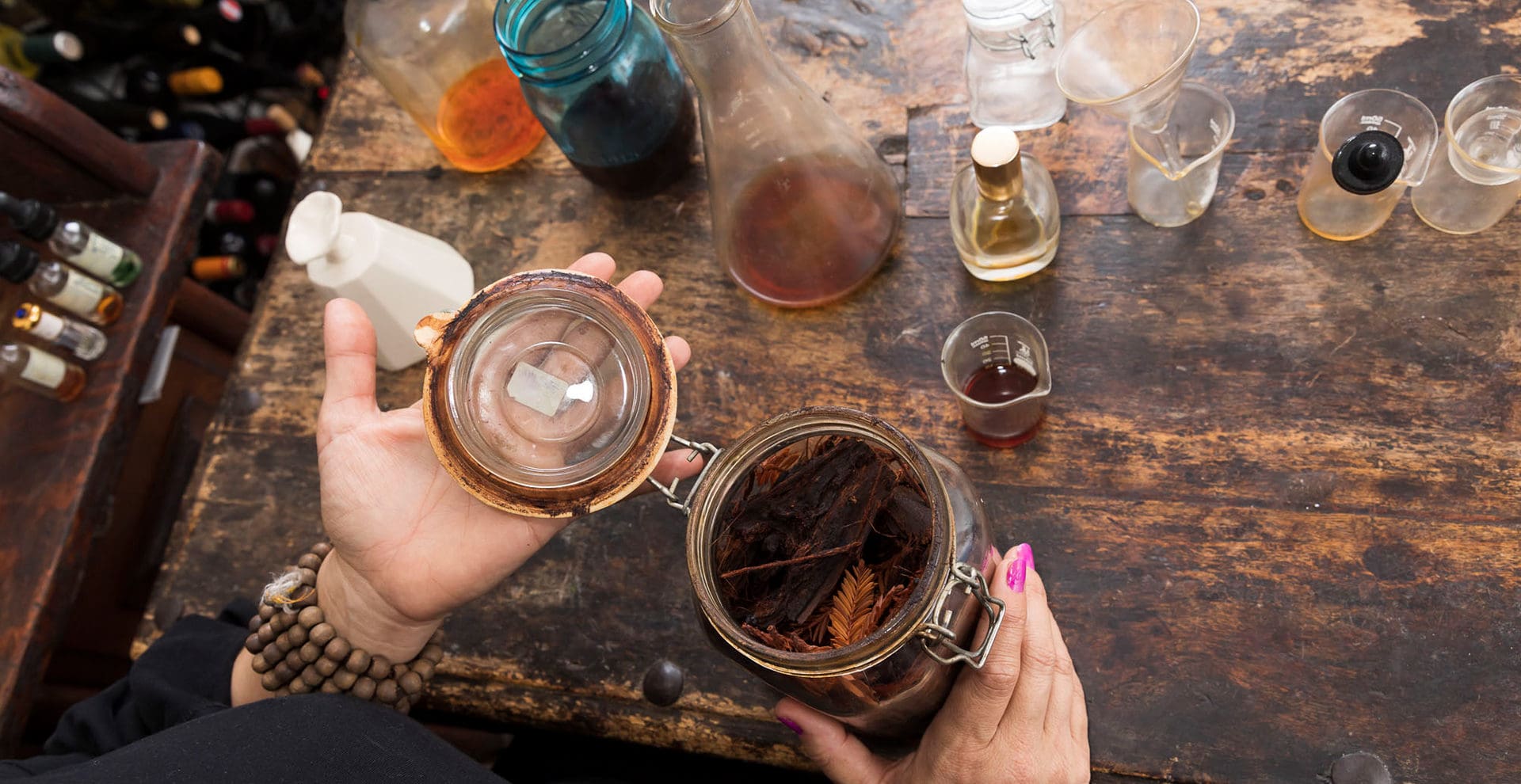
We both spent a lot of our professional lives being paid to smell and assess wines, e.g., as sommeliers! How did your work as a somm impact the way you create perfumes?
Rachel Binder: A lot of what I do and how I think as a perfumer is more similar to a winemaker, actually. My work is also heavily impacted by the spirits world and the great bartenders that I have been lucky enough to work around. For extractions that I make myself, I label things based on how long they were aged on skin (or bark) before their first filters. That’s not a notion that is very common in perfumery, although it is in the wine and spirits world!
Traditional synthetic perfumery (most of the industry) is more of a chemistry experiment that smells beautifully. But there is no way you can express terroir or seasons with petrochemical—even though there are many artists that work with that medium whose work I love—it’s just a different animal altogether. I don’t think that you can make a truly great terroir-driven wine with chemical additives and lots of manipulation. Similarly, the greatest aromas in the world cannot be synthesized in petrochemical form.
Some scents, like real oud, have been so important to humanity that it is referenced in nearly every major spiritual text for its transcendent qualities. I think that smelling real flowers and trees reminds us of how magical nature really is. Real jasmine has the power to calm your nervous system much more effectively than a pharmaceutical.
I am working on a VENICE scent right now mainly using things that grow (and that I was able to extract) here in Venice: guavas, guava leaf, citrus, pikake, frangipani and even a little seaweed. I think everything has an innate energy to it, so I think there’s something special about bringing together materials that grow together. It’s sort of like the old sommelier adage regarding food and wine pairings: “What grows together, goes together.”
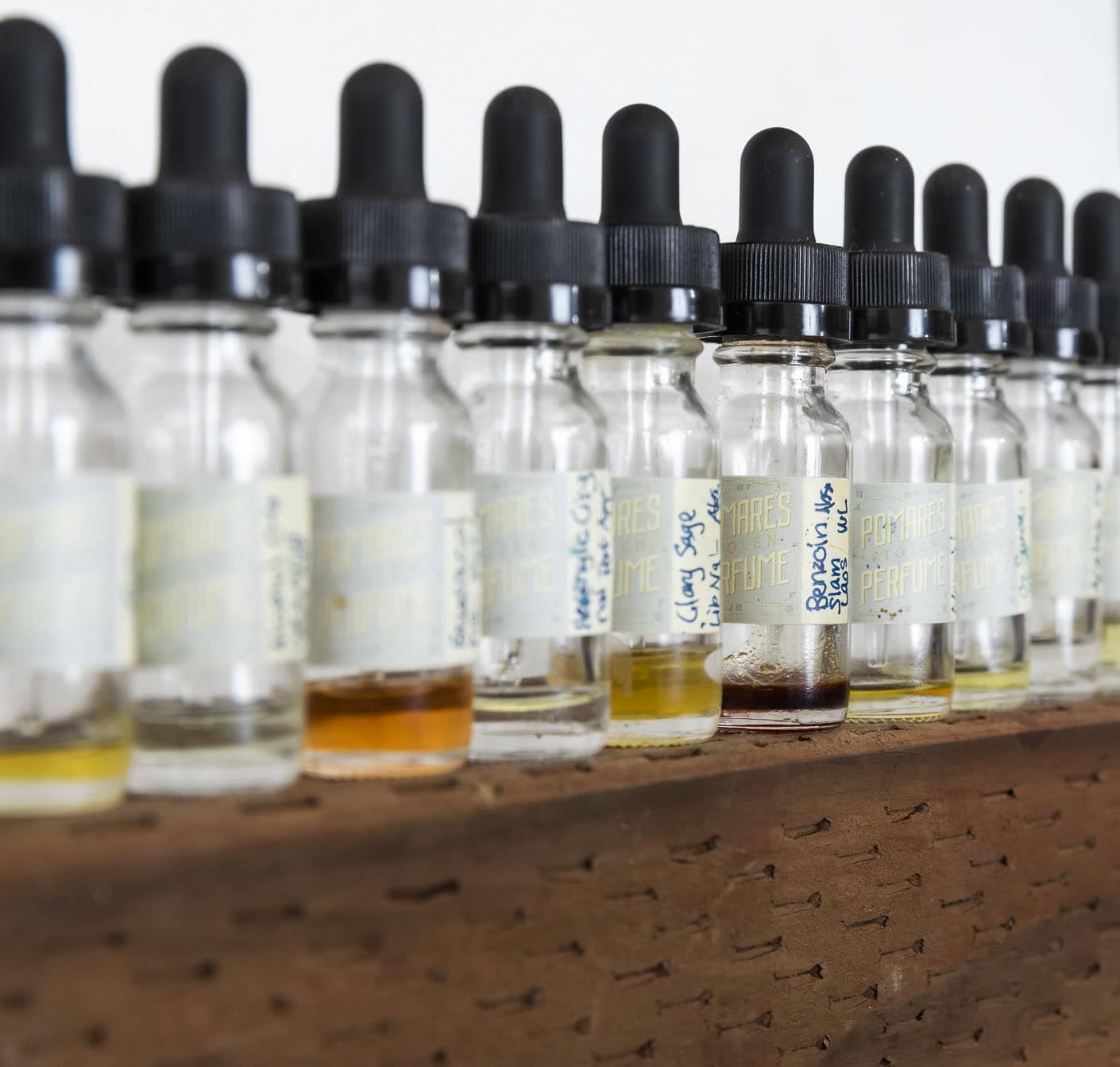
"The greatest aromas in the world cannot be synthesized in petrochemical form."
Pomare’s features natural ingredients. What does this mean to perfumes? What ingredients do you NOT use? How does going organic impact the longevity of a perfume’s aroma? Is this a “safer” cosmetic to use on your skin?
RB: While I do try to buy organic when I can, there are some materials where that just doesn’t apply. Just like in wine, it’s not about organic certification. It’s about knowing the practices of the growers from whom you are purchasing. There is a lot of greenwashing going on in the cosmetics and fragrance world right now. The overwhelming opinion from the old guard is that naturals are somehow more dangerous than petrochemicals— which flies in the face of basic logic. At least 30% of the general population complains of fragrance sensitivity. How often have you heard someone complaining about fragrance sensitivity while sitting in the woods? Perfume is the only place where we are expected to accept the notion that highly processed or fake is better. But I don’t know of any great chef who would choose a molecular strawberry representation in lieu of actual Harry’s Berries, for example. There are a lot of things hitting the market that appear natural and actually are not, as there is currently no governing body to regulate this.
When you’re creating a perfume blend, do you draw from childhood sensory memories? If painters use paint to capture remembered images, do you use esters as your own artistic medium?
RB: I absolutely do! I created a fragrance based around how it smelled and how it felt to sit in my grandmother’s yard in the summertime: 110-degree heat, earth, peaches, sandalwood (which I used to slather on when I was a teenager and lounging in my Grandma’s yard), gardenias and honeysuckle. The peaches were always so incredible I wanted to capture that and I wanted to do it without adding natural “molecules.” There is no peach essential oil so I wound up extracting it on my own from four types of peaches (some I aged in alcohol, some used fresh) and it turned out really beautifully! Summer-peachy with a honey-like quality.
I think of perfumery as sensory storytelling because there is something ineffable about scent that can connect something deeply personal to a complete stranger.
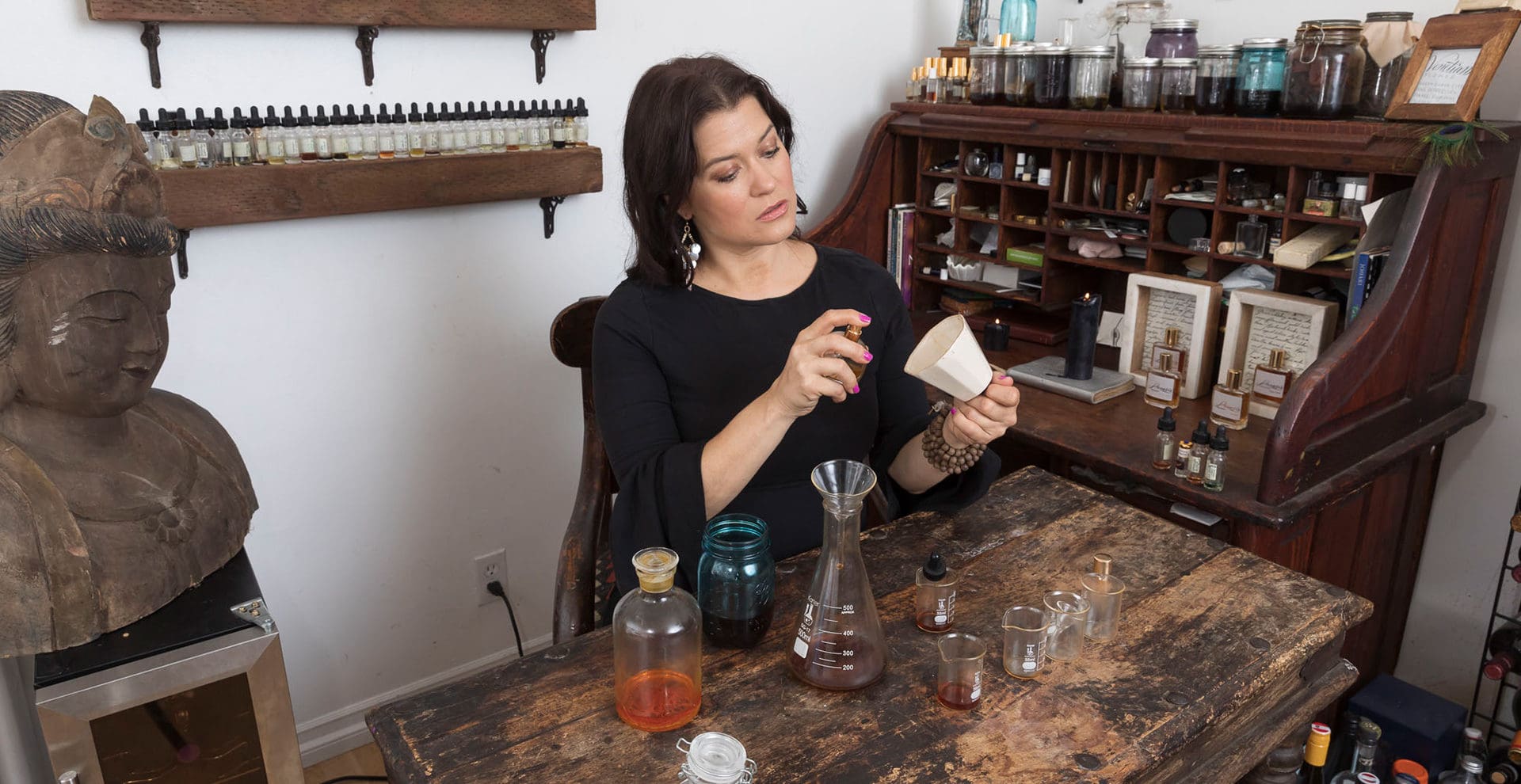
Pomare’s is the ultimate in hand-crafted as you make every bottle. Do you plan to scale up your business or do you prefer to try to keep it small-batch only?
RB: I had always planned to be small-batch only, until it occurred to me that much of what I do would scale up quite easily if I just construct the business like a small winery. I would like to expand to use larger hydro distillation equipment so that I can quality control the ingredients. I’ve never yet found a vanilla absolute that could hold a candle to the high-grade vanilla bean extraction I currently do at home. It’s all about scalability.
Are you open to creating custom scents for our readers? How do you go about creating a personalized blend?
RB: I have only just begun working on custom scents, which is a process I love. Similar to being a sommelier, the best scenario is always one where a client will have an idea of what they like and what they hate; you then are able to bring them something new that they never even knew they loved. It’s really exciting because there are so many scents that most people have never experienced in their pure form. Like oud! Or real aged sandalwood! It’s so exciting to experiment and to expand people’s sensory repertoires.
You can check out Pomare at pomaresstolenperfume.com
Flying Into April with a Calendar of Events
What to do this month across California.
The Mexican-American Roots of the Food Truck Phenomena
How a culinary revolution got its start on the streets of East LA, with a tiny tamale cart.
Get the Latest Stories
